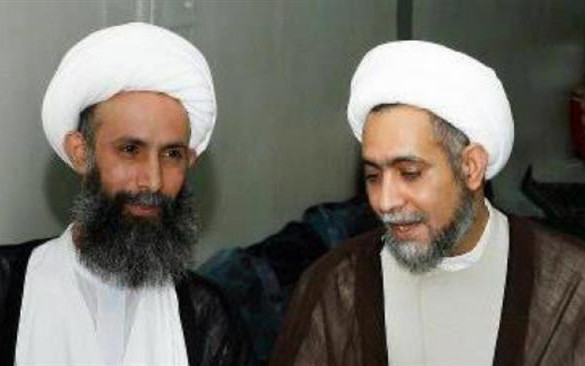The Government of Saudi Arabia targets and prosecutes political and religious activists who speak out against the government. Among those it targets are dissident clerics from the kingdom’s restive Eastern Province Shia minority like Sheikh Nimr Baqir al-Nimr. Sheikh Nimr was a forceful critic of the government. Due to his speeches, Saudi security forces harassed and ultimately arrested and executed him on 2 January 2016. Since his execution, the kingdom has continued to target dissident Shia clerics. It has increased its efforts since March 2016, arresting and prosecuting Sheikh Nimr’s associate Sheikh Mohammed Hassan al-Habib, raiding the headquarters of a Shia religious center, harassing the family of Shia clerics, and freezing Shia clerics’ bank accounts.
Among those the authorities have arrested is prominent Shia cleric Sheikh Mohammed Hassan al-Habib, who was among Sheikh Nimr’s top supporters and defenders. Officials detained Sheikh Habib and three of his associates on 8 July 2016 and held them incommunicado for three days. According to Americans for Democracy & Human Rights’ (ADHRB) reporting, Sheikh Habib was then transferred to the General Intelligence Prison in Dammam. According to the Arabic Network for Human Rights Information (ANHRI), authorities did not state a reason for Sheikh Habib’s detention. However, it is believed that his arrest is due to his vocal support for the right to protest peacefully. He is the imam of one of the largest mosques in the Eastern Province governorate and has used his position to advocate for increased social justice, more freedoms, and an end to anti-Shia sectarian discrimination. He has also called on the Saudi government to release all prisoners of conscience detained for exercising their right to freedom of expression, hold security forces who fired on protesters accountable, and grant Saudi Arabia’s Shia population the right to participate in politics. According to ADHRB’s reporting, Sheikh Habib remains in jail.
In addition to detaining Sheikh Habib, Saudi officials have harassed and arrested other Shia clerics and their families. On 21 July 2016, security forces reportedly misled the family of Sheikh Samir al-Helal into thinking they would be allowed to visit him in prison for the first time since his arrest on 16 December 2015. However, officials then reportedly separated members of his family and interrogated his two wives for more than four hours. On 15 August, security forces summoned Sheikh Hussein Ayesh, a prominent al-Ahsa cleric, to the Investigation and Prosecution Authority, where they interrogated him concerning his alleged money laundering actions. Furthermore, authorities have frozen 17 bank accounts of Shia clerics from Qatif under the pretext of collecting illegal funds and money laundering.
Because of the influential positions they fulfill in each of their communities, Shia clerics are often leaders of political and popular mobilization movements against the government. Denouncing decades of Saudi state-sponsored discrimination, clerics like Sheikh Habib and Sheikh Nimr evoke international human rights principles and advocate for political equality. As a result, the Saudi government targets Shia clerics, harassing and detaining them, in an effort to silence their opposition and dissent. The religiously-focused nature of the government’s actions infringes on Saudi Shia’s rights to freedom of religion and opinion as enshrined in the Universal Declaration of Human Rights. Saudi Arabia should halt the targeting of Shia religious figures and immediately and unconditionally release all religious figures and political prisoners. It should enshrine the principles of freedom of religion and freedom of expression in its domestic legislation and accede to the International Covenant on Civil and Political Rights.
Tyler Pry is the Sheikh Nimr al-Nimr Advocacy Fellow at ADHRB





